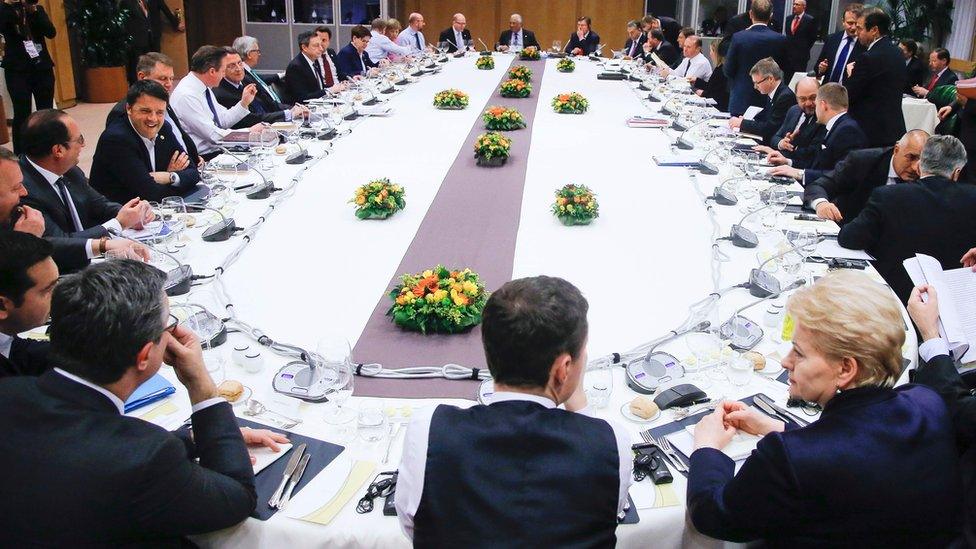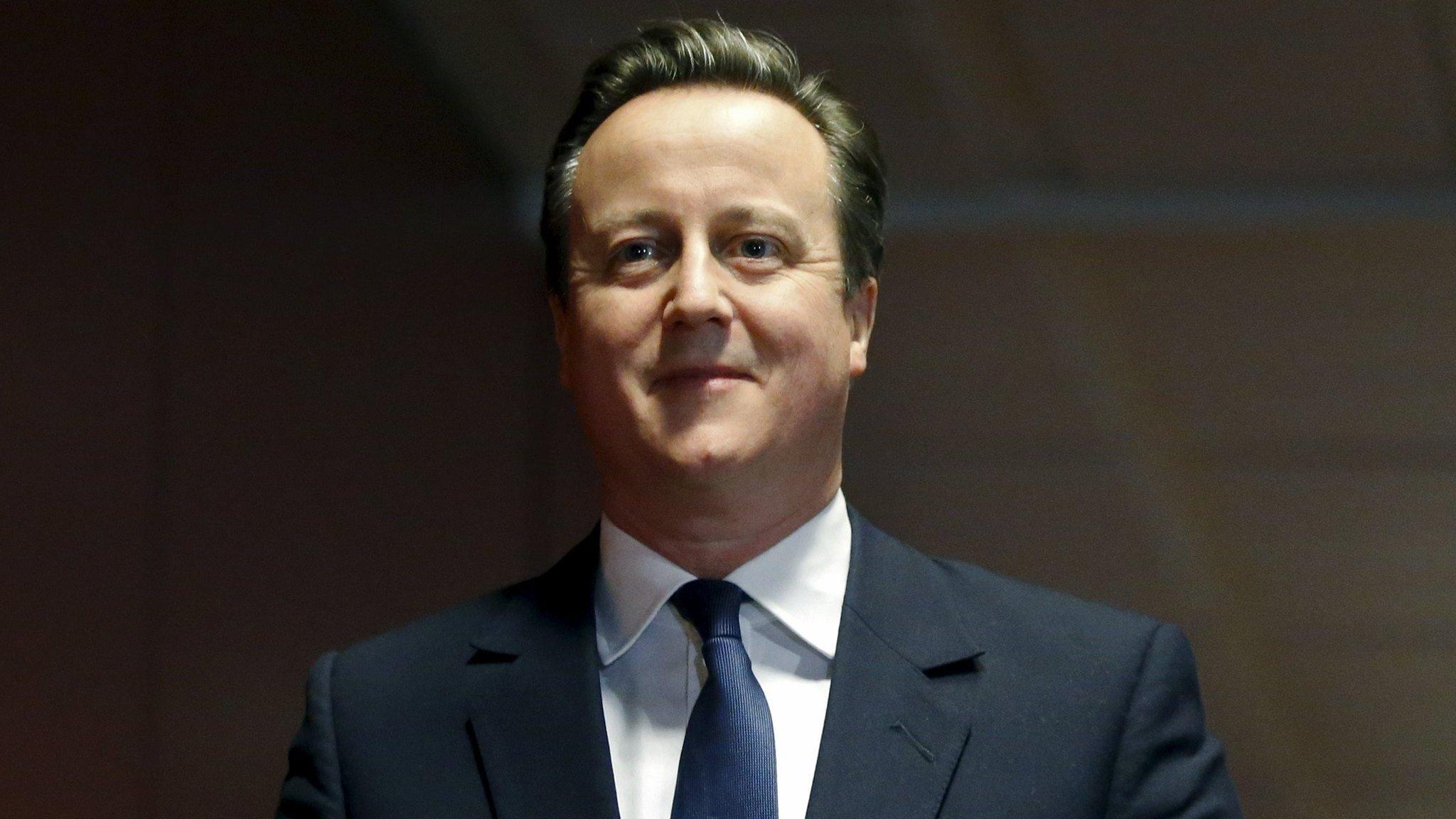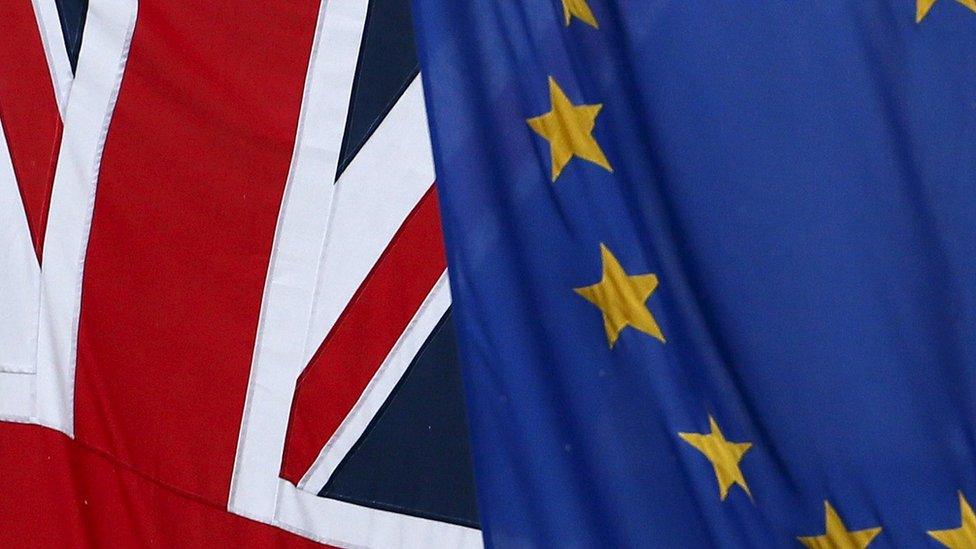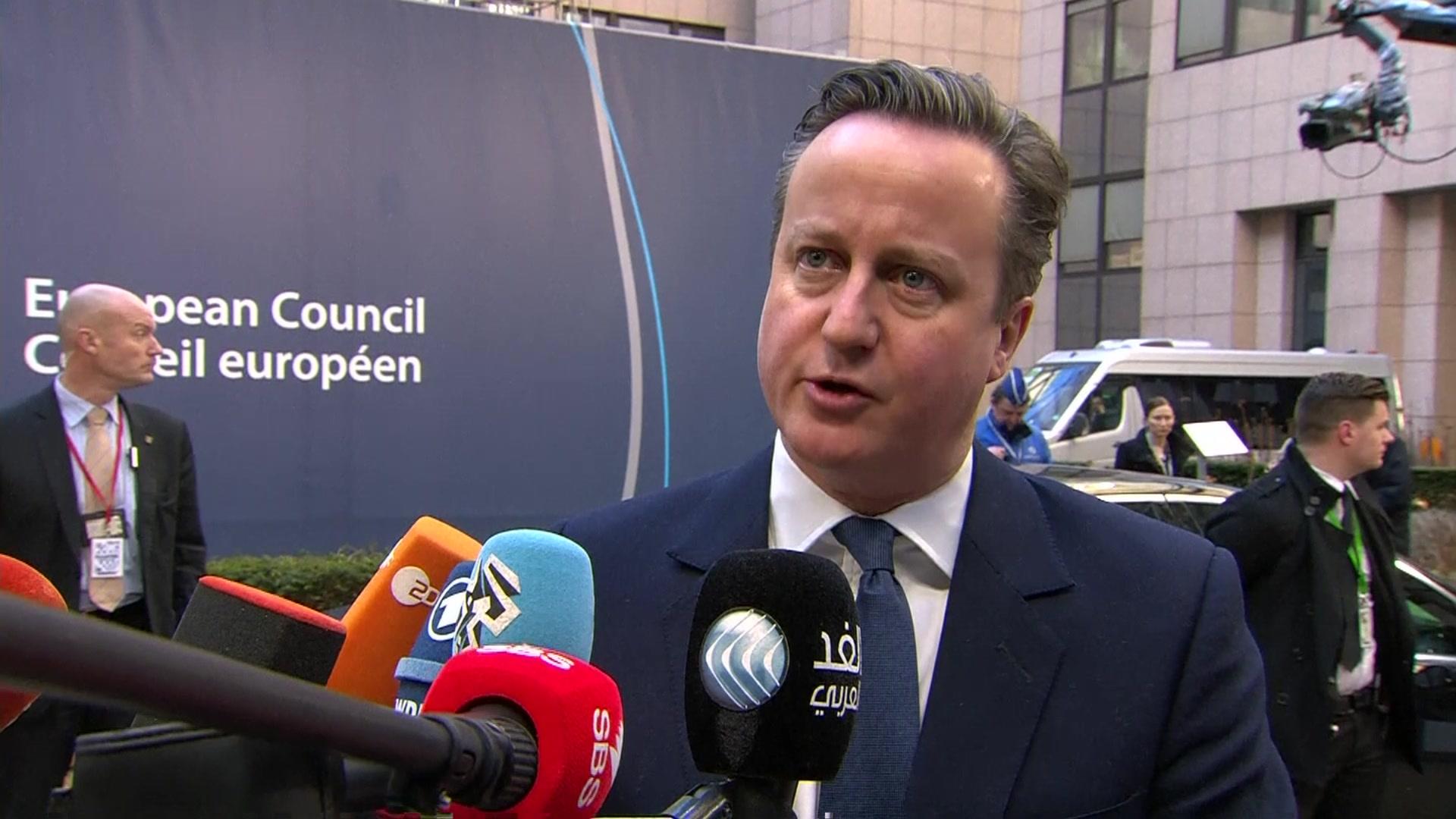UK-EU deal: Focus now on substance of David Cameron's agreement
- Published

The ink is hardly dry on the UK's EU deal, but immediately the focus has switched to the substance of what David Cameron has achieved and - possibly an awkward question - how many of his colleagues will argue against him.
The focus will move to whether the prime minister can keep his party politely together during a period of public disagreement.
The ability to restrict benefits to migrants is an important victory for Mr Cameron - ammunition for his argument that he has achieved changes to help reduce the number of EU migrants coming to live and work in the UK.
The proposals are complicated and do not exactly match the promises he made in the Conservative Party manifesto.
But with it - and the other commitments - it becomes harder for his critics to make the case that the agreement is flimsy and will change nothing.
Critic to supporter
Mr Cameron is now set for a referendum campaign when he will turn from one of the EU's critics to an enthusiastic supporter of an institution that he will argue is changing for the better.
But he will face, repeatedly, a different question.
If the deal is so good - truly transformative - why do many of his senior colleagues not see its merits?
The loss of his close colleague and personal friend Michael Gove to the other side of the debate is a disappointment to Downing Street - even if it is not surprising.
Others will follow. Iain Duncan Smith, Chris Grayling, possibly as many as six cabinet ministers, and perhaps Boris Johnson - a politician able to cut through Westminster's machinations and speak directly to the public.
But this will be an intense and hard-fought battle between politicians of all stripes - a campaign that crosses party boundaries.
Ultimately, it will be a choice for all of us, the like of which British voters have not had for decades.
- Published20 February 2016

- Published21 February 2016

- Published19 February 2016
